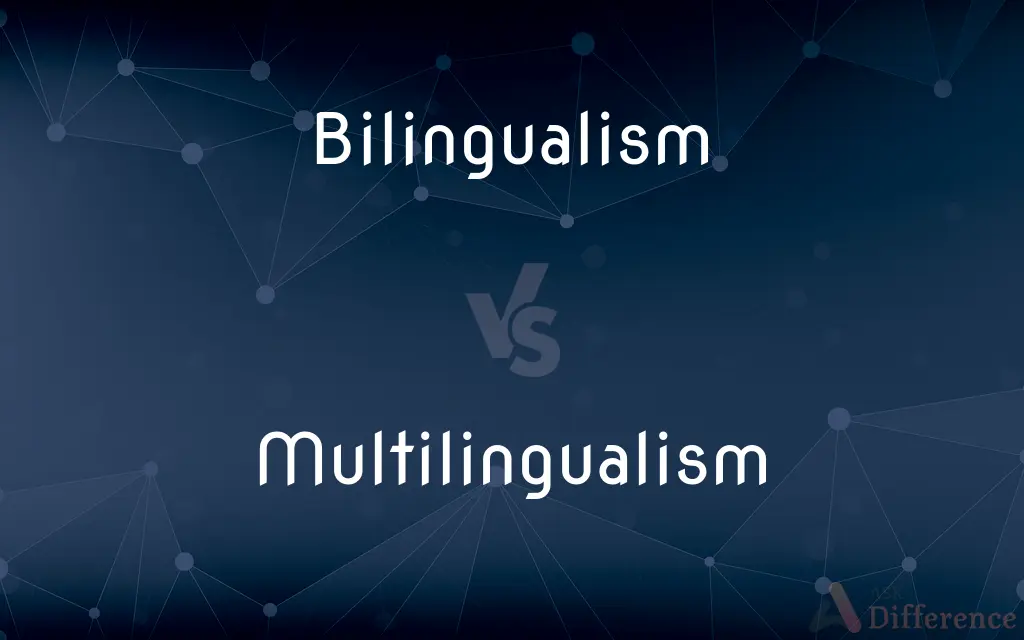Bilingualism vs. Multilingualism — What's the Difference?

Difference Between Bilingualism and Multilingualism
ADVERTISEMENT
Compare with Definitions
Bilingualism
Using or able to use two languages, especially with equal or nearly equal fluency.
Multilingualism
Multilingualism is the use of more than one language, either by an individual speaker or by a group of speakers. It is believed that multilingual speakers outnumber monolingual speakers in the world's population.
Bilingualism
Using two languages in some proportion in order to facilitate learning by students who have a native proficiency in one language and are acquiring proficiency in the other
Bilingual training.
Bilingual education.
Multilingualism
Of, including, or expressed in several languages
A multilingual dictionary.
Bilingualism
Of, relating to, or expressed in two languages
A bilingual dictionary.
ADVERTISEMENT
Multilingualism
Using or having the ability to use several languages
A multilingual translator.
Bilingualism
A person who uses or is able to use two languages, especially with equal fluency.
Multilingualism
The condition of being multilingual; the ability to speak multiple languages
Bilingualism
The condition of being bilingual; the ability to speak two languages.
Bilingualism
Quality of being bilingual.
The bilingualism of King's English.
Share Your Discovery

Previous Comparison
Metacarpal vs. Metatarsal
Next Comparison
Stamping vs. Punching















































